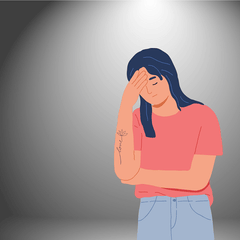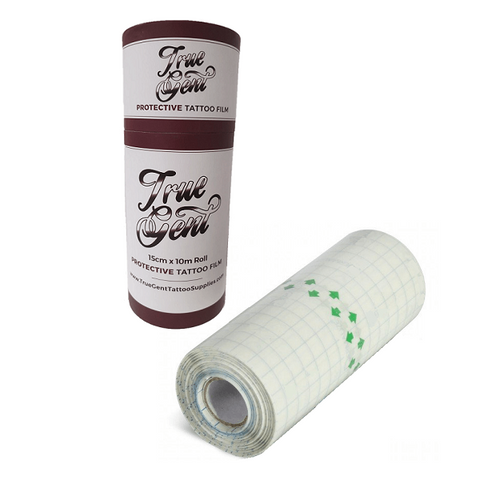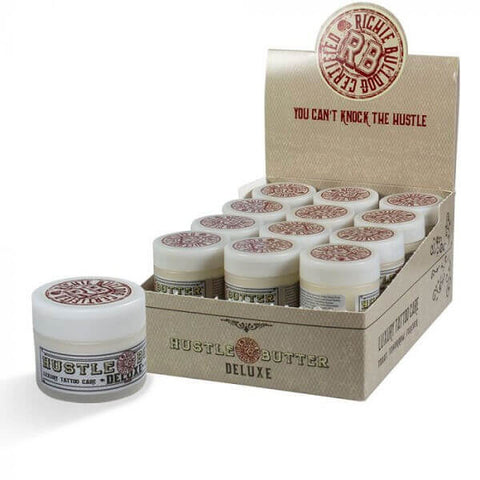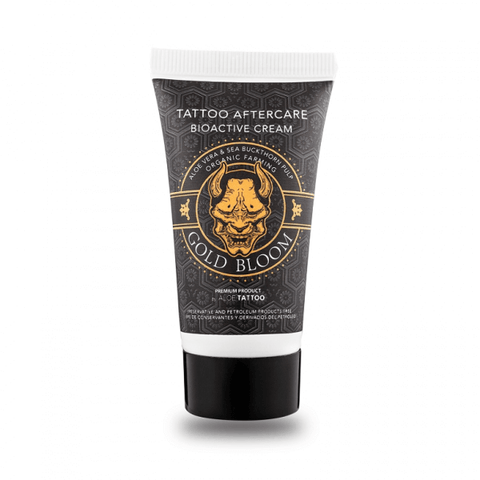Why You Shouldn't Worry About Tattoo Regret Later in Life

If you have tattoos, you will probably have heard this phrase or some variation at some point in your life: "You know those will still be there when you are 80?" It's common for people who don't like or have tattoos themselves to make statements like this.
In this post, we will explore why this type of comment is so common and explain why tattoo regret isn't something you should be too worried about.
What is Tattoo Regret?
Tattoo regret is the feeling some people experience once their tattoo is complete. It can happen for several different reasons and isn't always instant—instead, feelings of regret can begin to creep in years down the line.

Some main reasons for regretting a tattoo include not being happy with the finished quality or no longer resonating with the tattoo's design.
While tattoos are becoming more widely accepted in society, the placement of the tattoo can also be a cause for regret. There is still some stigma connected to visible tattoos, especially those on the hands or face. People tattooed in these areas may experience more regret than others due to the additional struggles imposed upon them regarding issues like employment.
Tattoo regret can manifest itself in subtle ways, such as not wanting to show off one's tattoos in certain situations or feeling embarrassed when asked about them.
Many people assume that if you get your tattoo at a young age, you are bound to regret it later down the line. They are permanent pieces of body art after all. The natural ageing process is also likely to alter the appearance of the tattoo in some way.

Though it may seem logical to fear regretting your tattoos later in life, only a pretty small proportion of people end up feeling this way.
Getting Your First Tattoo at a Young Age
"You'll regret that when you are older" is most commonly directed towards young people getting their first tattoo. Of course, in the UK it is illegal for those under the age of 18 to get a tattoo.
However, people in their twenties and early thirties may still be considered more impressionable and may not have the same life experiences as those who are older. For these reasons, many sceptics are quick to assume that young people who choose to get tattooed are making decisions they won't be happy with later in life.
Though a person's views and interests may indeed change over time, it doesn't mean that any tattoos acquired during this period of life will be regretted. Many people get their first tattoo at a younger age because they are sure it will still hold a special place in their heart later on.
Reasons for Regretting Body Art in the Future
We previously covered some of the main reasons some people experience tattoo regret. However, in many instances, tattoo regret is caused by a lack of proper planning and research prior to getting inked.

Those who get tattooed based on pure impulse or a whim are most likely to feel disappointed or embarrassed by their decision later on. It is important to take the necessary time to explore design options and understand the implications of getting a permanent piece of body art before going through with it.
Does Aging Skin Stop You From Getting Tattooed?
While it is true that many people think of tattoos as an impulse decision made when someone is young, there is absolutely nothing wrong with waiting until later in life to get tattooed. In fact, getting a tattoo at a later age can be beneficial in many ways.
For starters, tattoos are not just a form of body modification but can be a powerful form of self-expression. When people reach their thirties and forties, they are more likely to have a strong sense of identity and know which designs resonate with them.

However, the natural ageing process will affect how tattoos look on the body. As skin ages, it loses some of its elasticity and will start to wrinkle or sag. An older person looking to get tattooed may want to opt for designs with solid line work rather than small intricate pieces, which are more likely to become distorted.
Opting for a placement on flatter areas of the body, such as on the back or forearm, should also improve the longevity of your tattoo. Areas such as the knees and elbows are more exposed and general wear and tear will likely affect the quality of your ink in the long run.
Tips to Keep Tattoos on Older Skin Looking Their Best
No matter how old you are when you get your tattoo, taking care of it is essential to keep it looking its best. As skin ages and loses elasticity, tattoos may fade or stretch over time if not properly taken care of. To prevent this from happening as much as possible, follow our tips below.

First and foremost, following the aftercare advice given to you by your tattoo artist for new tattoos is vital. Once healed, moisturising the tattooed area on a regular basis will also help to keep it looking its best. Ensuring that the skin around the tattoo remains hydrated and supple, should prevent the design from becoming too dry or stretched out over time.
Using sun cream or covering up when spending time outside in the sun is also crucial for protecting tattoos. While UV rays can fade any tattoo over time, older skin usually fades faster than younger skin so extra precautions should be taken.
With proper care and maintenance, your tattoos will remain a source of pride and joy for many years.

Will You Regret That Tattoo When You're 80?
It's true that interests can change over time, but tattoos are more than a passing interest for most tattooed individuals. Those passionate about tattoos invest a lot of time and money into the art form to get a design they absolutely love. It's unlikely they'll wake up on their 80th birthday and suddenly start to hate their tattoos.
However, it's possible to understand why many sceptics ask this type of question; our bodies change over time and our tattoos change with them. Ageing is inevitable and tattoos may look fresher on younger people.
Nonetheless, tattoos on old skin still tell stories and can serve as powerful reminders of certain experiences or feelings. Plus, being above a certain age doesn't mean you can't get tattooed either!
Overall, no matter what age you get a tattoo, your body art will age gracefully with you. Aged tattoos can be just as much, if not more, of a conversation starter than when newly healed. Wear your ink with pride!
Other Helpful Articles:
Heal a Tattoo Without Scabbing
Last Updated April 2023
- Katy Jackson










